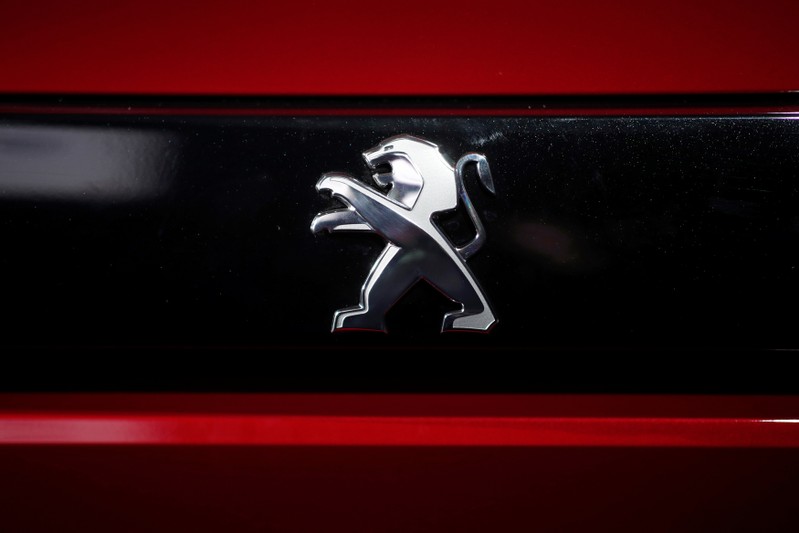
FILE PHOTO: The Peugeot logo is pictured on the new Peugeot 508 before a news conference of PSA Group to announce the company’s 2017 annual results at their headquarters in Rueil-Malmaison, near Paris, France, March 1, 2018. REUTERS/Benoit Tessier/File Photo
July 24, 2019
By Laurence Frost
PARIS (Reuters) – French carmaker PSA Group <PEUP.PA> delivered a sharp increase in first-half profit, defying a global industry downturn as new models and cost savings from the integration of Opel-Vauxhall more than made up for weaker emerging market sales.
Standing out against profit warnings from peers such as Daimler <DAIGn.DE>, PSA said on Wednesday its efficiency drive produced a 10.6% operating income gain even as deliveries went the other way – with a 12.8% decline posted earlier this month.
That lifted the Peugeot maker’s operating margin to a new 8.7% record from 7.8% a year earlier, boosted by a 270 million euro ($301 million) increase in cost savings on purchasing, research and development and overheads.
“Our results are proving the sustainability of our performance despite the weakness of global markets,” Chief Financial Officer Philippe de Rovira told reporters on a call.
The recurring operating income came in at 3.34 billion euros, with net income up by almost a quarter to 1.832 billion as revenue slid 0.7% to 38.3 billion.
“PSA continues to buck the trend being seen among most carmakers,” Citi analyst Raghav Gupta-Chaudhary said. Barring any new merger opportunities, PSA could have about 3 billion euros in excess cash to return to shareholders, he added.
PSA’s pricing and profitability also benefited from new models such as the Citroen C5 Aircross SUV and a trio of commercial van launches – with strong gains in evidence at Opel-Vauxhall, acquired from General Motors <GM.N> in 2017.
PSA shares were up 0.8% as of 0713 GMT in Paris, set against a smaller decline for European automotive stocks <.SXAP>. Much of the operating-cost improvement stemmed from steady integration of the vehicle technologies and architectures underpinning new models across the Peugeot, Citroen, DS, Opel and Vauxhall brands.
PSA’s bottom-line improvement came despite a 302 million-euro hit from China that included a 139 million asset writedown reflecting a steady plunge in the group’s sales – down another 61% in the first half.
The French carmaker is seeking to cut capacity at its manufacturing venture with its 12.2% shareholder Dongfeng, De Rovira said on Wednesday.
For the full year, PSA predicted further auto-market contractions of 1% in Europe, 4% in Latin America and 7% in China, with Russia growing 3%.
But European sales disruption in late 2018 – when tougher emissions rules forced competitors to suspend key models including the Volkswagen <VOWG_p.DE> Golf – means the market is likely to grow in the latter half of 2019, the CFO said.
The risk of a hard Brexit, however, make it “difficult to predict what the operating environment will be”, he added.
PSA said its positive free cash flow came to almost 1.6 billion euros at group level in the first half, with 2.29 billion euros at the core car-manufacturing business.
(Reporting by Laurence Frost and Gilles Guillaume; Editing by Sudip Kar-Gupta and Keith Weir)

